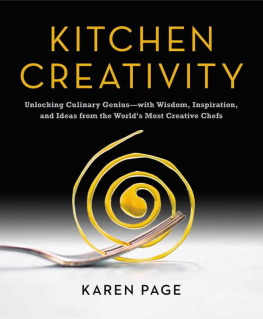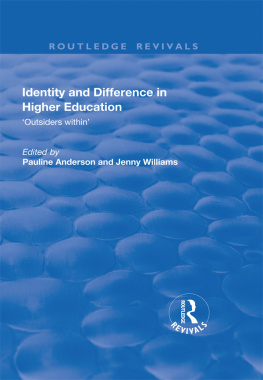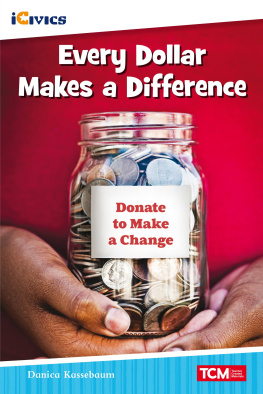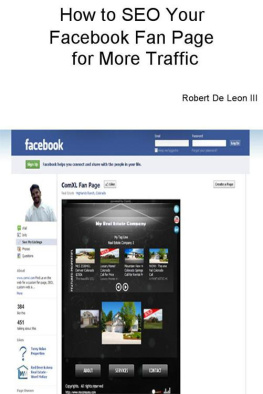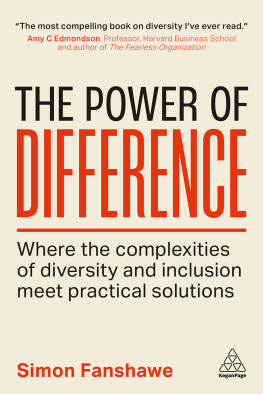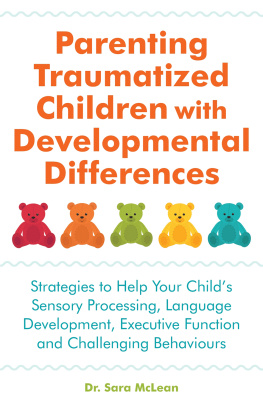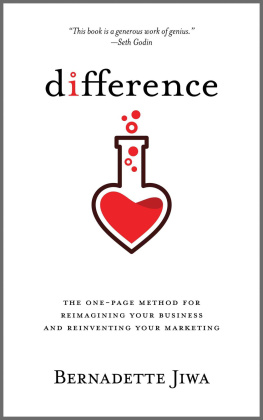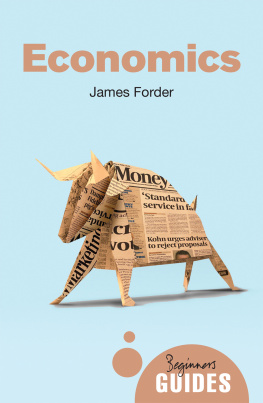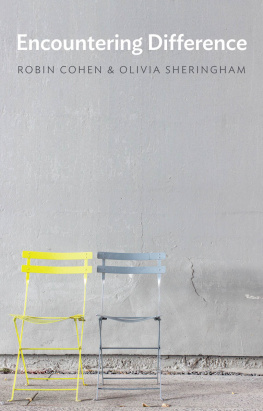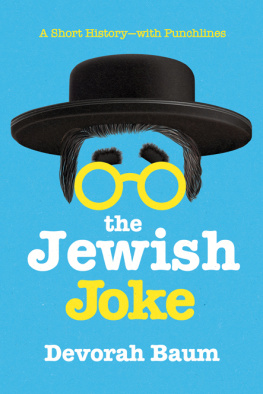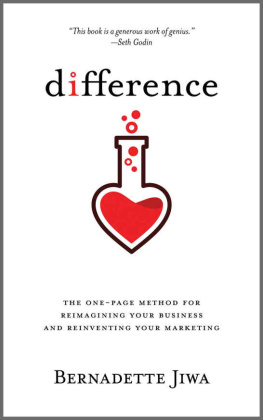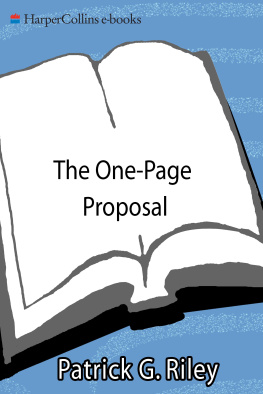Page - The Difference
Here you can read online Page - The Difference full text of the book (entire story) in english for free. Download pdf and epub, get meaning, cover and reviews about this ebook. year: 2007, publisher: Princeton University Press, genre: Politics. Description of the work, (preface) as well as reviews are available. Best literature library LitArk.com created for fans of good reading and offers a wide selection of genres:
Romance novel
Science fiction
Adventure
Detective
Science
History
Home and family
Prose
Art
Politics
Computer
Non-fiction
Religion
Business
Children
Humor
Choose a favorite category and find really read worthwhile books. Enjoy immersion in the world of imagination, feel the emotions of the characters or learn something new for yourself, make an fascinating discovery.

The Difference: summary, description and annotation
We offer to read an annotation, description, summary or preface (depends on what the author of the book "The Difference" wrote himself). If you haven't found the necessary information about the book — write in the comments, we will try to find it.
Page: author's other books
Who wrote The Difference? Find out the surname, the name of the author of the book and a list of all author's works by series.
The Difference — read online for free the complete book (whole text) full work
Below is the text of the book, divided by pages. System saving the place of the last page read, allows you to conveniently read the book "The Difference" online for free, without having to search again every time where you left off. Put a bookmark, and you can go to the page where you finished reading at any time.
Font size:
Interval:
Bookmark:
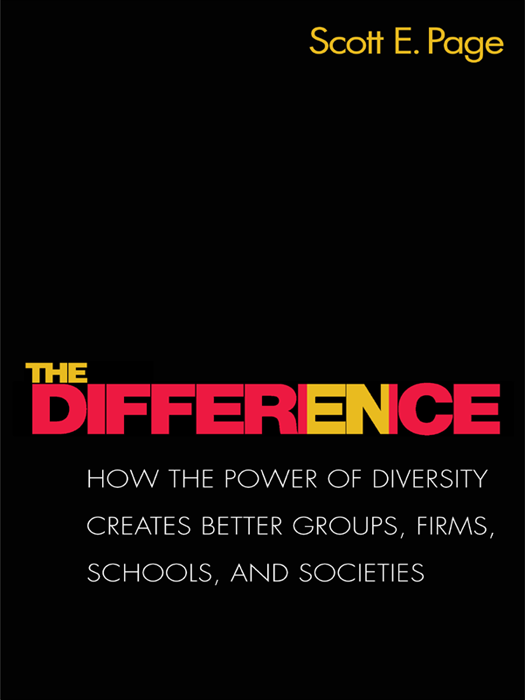
The Difference 
HOW THE POWER OF DIVERSITY
CREATES BETTER GROUPS, FIRMS,
SCHOOLS, AND SOCIETIES
With a new preface by the author
Scott E. Page
P R I N C E T O N U N I V E R S I T Y P R E S S
P R I N C E T O N A N D O X F O R D
Copyright 2007 by Princeton University Press
Published by Princeton University Press, 41 William Street, Princeton, New Jersey 08540
In the United Kingdom: Princeton University Press, 6 Oxford Street, Woodstock, Oxfordshire OX20 1TW
All Rights Reserved
Third printing, and first paperback printing, with a new preface by the author, 2008
Paperback ISBN: 978-0-691-13854-1
The Library of Congress has cataloged the cloth edition of this book as follows
Page, Scott E.
The difference : how the power of diversity creates better groups, firms, schools, and societies / Scott E. Page.
p. cm.
ISBN-13: 978-0-691-12838-2 (cloth : alk. paper)
ISBN-10: 0-691-12838-3 (cloth : alk. paper)
1. Diversity in the workplace. 2. Multiculturalism. I. Title.
HF5549.5.M5P34 2007
658.3008dc22 2006044678
British Library Cataloging-in-Publication Data is available
This book has been composed in Sabon Typeface
Printed on acid-free paper.
press.princeton.edu
Printed in the United States of America
10 9 8 7 6 5 4 3
Jungleland by Bruce Springsteen. Copyright 1975 (Renewed) Bruce Springsteen (ASCAP). Reprinted by permission. International copyright secured. All rights reserved.
JENNA, I dedicate this discrete product of our continuous lives to you.
From the earliest traceable cosmical changes down to the latest results of civilization, we shall find that the transformation of the homogeneous into the heterogeneous is that in which progress consists.
H ERBERT S PENCER , Progress: Its Law and Cause
The dim boy claps because the others clap.
R ICHARD H UGO , The Freaks at Spurgin Road Field
Preface to the Paperback Edition
Prufrock Avoided
Acknowledgments
The Continuous Life
Prologue
How Diversity Trumps Ability: Fun at Caltech
Introduction
Unpacking Our Differences
PART ONE
UNPACKING THE TOOLBOX
1
Diverse Perspectives
How We See Things
2
Heuristics
Do the Opposite
3
Interpretations
Our Own Private Flatland
4
Predictive Models
Judging Books by Their Covers
5
Measuring Sticks and Toolboxes
Calipers for the Brain
PART TWO
DIVERSITYS BENEFITS: BUILDING FROM TOOLS
6
Diversity and Problem Solving
Darwins Brass Tacks
7
Models of Information Aggregation
Mindless Signals
8
Diversity and Prediction
The Crowd of Models
PART THREE
DIVERSE VALUES: A CONFLICT OF INTERESTS
(OR IS IT)?
9
Diverse Preferences
Why Tapas
10
Preference Aggregation
Four (Not So) Depressing Results
11
Interacting Toolboxes and Preferences
Go Ask Alice
PART FOUR
THE PUDDING: DOES DIVERSITY GENERATE
BENEFITS?
12
The Causes of Cognitive Diversity
Family Vacations, College, or Identity?
13
The Empirical Evidence
The Pudding
PART FIVE
GOING ON THE OFFENSIVE
14
A Fertile Logic
Putting Ideas to Work
Epilogue
The Ketchup Questions
That is not it at all.
That is not what I meant, at all.
T. S. E LIOT , The Love Song of J. Alfred Prufrock
In January 2007, I stood in an upstairs ballroom of the Palmer House Hotel in Chicago, preparing to speak to a group of high school administrators. One hundred copies of The Difference lay stacked nearby on a catering table. Officially, the book had yet to be released, so this was, in effect, its coming out party. As I stared at the uncracked spines, I pondered the books reception. Would people get it? Or would I spend the next few years quoting T. S. Eliot?
Happily, Prufrock has been avoided.
Not that I didnt have my moments of doubt. Initial readings were all over the map. Some in the blogosphere characterized the book as Jim Suroweickis Wisdom of Crowds on steroids. Others framed it as a book about affirmative action. Still others said it described a portfolio model of people. My wife assured me that these were proof of my theoryevidence of diverse perspectives in action. I was less certain and dusted off my Eliot to work on cadence.
Perhaps because The Difference takes time to digest, eventually, accurate readings won out. Reviewers recognized that The Difference explores the pragmatic, bottom-line contributions of diversity. It does so using models and logic, not metaphor. The books claims that collective ability equals individual ability plus diversity and that diversity trumps ability are mathematical truths, not feel-good mantras.
Diversity, as characterized in the book, means differences in how people see, categorize, understand, and go about improving the world. I should hasten to add that the books emphasis on cognitive diversity and the pragmatic benefits of diversity does not deny other dimensions of diversity. Those exist, and they matter. In fact, identity diversity and cognitive diversity often go hand in hand. Two people belonging to different identity groups, or with different life experiences, also tend to acquire diverse cognitive tools.
Unfortunately, rather than leverage those differences to our collective benefit, we often allow our differences to impede progress and innovation. When confronted with someone who looks or acts differently, many of us tend to recoil. Soon after the initial publication of The Difference, Robert Putnam released results from a large survey that demonstrated the scale of this negative response to diversity. He found that levels of civic engagement and trust decreased as communities became more diverse. Note that in his case, diversity means ethnic diversity.
His raw data painted a bleak picture. People in diverse neighborhoods not only trusted people belonging to other ethnic groups less, they trusted everyone less. Not good. Reality may not be as bleak as Putnams most publicized graphs seem to imply, however. After he takes into account control variablescrime, income, city size, educational attainment, etc.the negative effects of diversity decrease substantially.
But the media saw Putnams work and mine as contradictory: Putnam says diversity is bad. Page says diversity is good. The juxtaposition was ill posed. Putnam had done survey research. I had written theoretical models. Putnam was asking people about trust and happiness. I was constructing models of collective productivity, accuracy, and innovation. He was asking, do we get along? I was analyzing whether diverse teams make better mousetraps.
Interacting with a large number of diverse people should be more cognitively taxing than hanging out with your close friends, who look, think, and act just like you. Situated in a diverse polyglot, people may indeed feel the need to hunker down (to use Putnams phrase). Even so, they probably do not fully insulate themselves. They cannot avoid having their world view a bit more exposed to new ways of seeing and thinking, and as a result they cannot help but become a bit more productive. Thus, we should expect members of diverse communities, cities, and nations to be more productive, even if they are less trusting.
Font size:
Interval:
Bookmark:
Similar books «The Difference»
Look at similar books to The Difference. We have selected literature similar in name and meaning in the hope of providing readers with more options to find new, interesting, not yet read works.
Discussion, reviews of the book The Difference and just readers' own opinions. Leave your comments, write what you think about the work, its meaning or the main characters. Specify what exactly you liked and what you didn't like, and why you think so.






